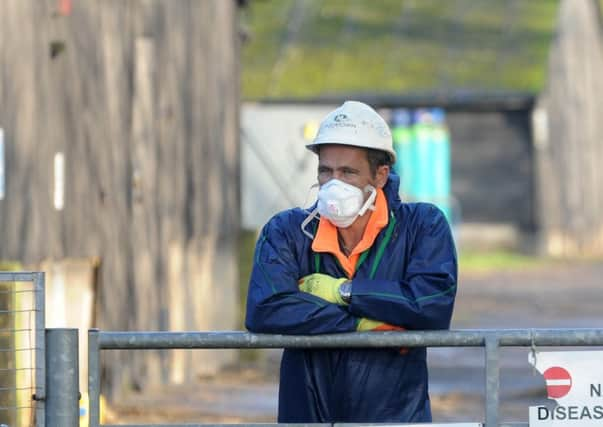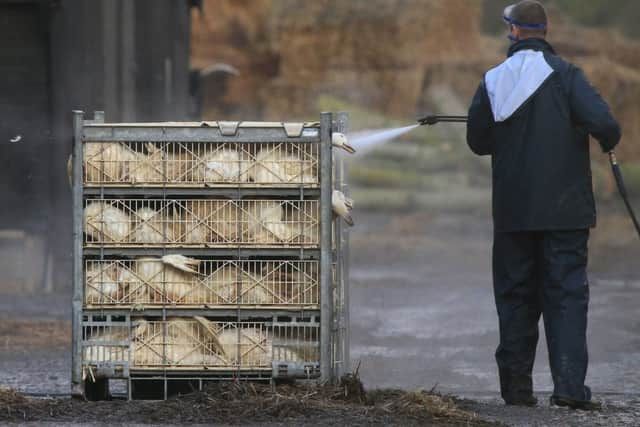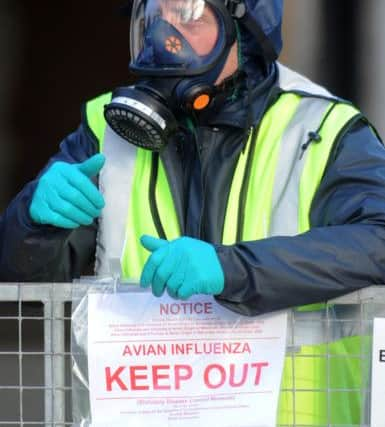Bird flu outbreak confirmed at northern farm


The strain of avian flu is known as H7N7 strain, which can infect people, but Public Health England has said that the risk to public health from this strain is very low, while the Food Standards Agency said there is no food safety risk for consumers.
The announcement follows a suspected case of bird flu in the county on Friday.
Advertisement
Hide AdAdvertisement
Hide AdA 10 kilometre (six mile) surveillance zone and an inner three kilometre (1.8 mile) protection zone have been put in place around the farm at Goosnargh, to the north-east of Preston. It is owned by family business Staveley’s Eggs, which produces and packages free range and colony cage eggs. Humane culling of all birds at the farm is continuing, officials said.


The strain is highly pathogenic, which means it is highly contagious in flocks and can cause deaths in birds.
But it is not the H5N1 strain which has led to hundreds of deaths in people worldwide. Most types of bird flu are harmless to humans but two types - H5N1 and H7N9 - have caused serious concerns.
Other bird flu strains, including H7N7, have infected people, but these have been very rare or have only rarely caused severe illness, experts said.
Advertisement
Hide AdAdvertisement
Hide AdChief veterinary officer Nigel Gibbens said: “Final tests results have confirmed a case of avian flu at a farm in Lancashire. Restrictions put in place last week will continue and the humane culling of all birds at the site is progressing.


“These actions are part of our tried and tested approach to dealing with previous outbreaks.
“Public Health England has confirmed that the risk to public health from this strain is very low. The Food Standards Agency has said there is no food safety risk for consumers.
“Bird keepers should remain alert for any signs of disease, report suspect disease to their nearest APHA (Animal and Plant Health Agency) office immediately and ensure they are maintaining good biosecurity on their premises.”
Advertisement
Hide AdAdvertisement
Hide AdPoultry farmers within the 10km zone around the infected premises are not allowed to move poultry, captive birds or other mammals except under licence as a result of the restrictions imposed on Friday when the outbreak was suspected.
In February, a low-severity H7N7 strain of bird flu was confirmed in chickens at a farm in Hampshire. The last highly pathogenic case of avian flu was an outbreak of H5N8 flu in Yorkshire last November, following outbreaks of the same strain on the continent.
Defra said an investigation into the latest outbreak was under way.
On Friday, a suspected outbreak of bird flu was reported at a farm near the town of Longridge, to the north of Preston and about four miles from Goosnargh.
Advertisement
Hide AdAdvertisement
Hide AdProf Andrew Easton, Professor of Virology at the University of Warwick, said: “The confirmed case of H7N7, otherwise known as bird flu, in Lancashire is a concern because of the potential threat to the UK poultry industry.
“There is no reason at this stage to believe that there is a threat to humans either directly by infection with the virus or indirectly by the presence of the virus in food.”